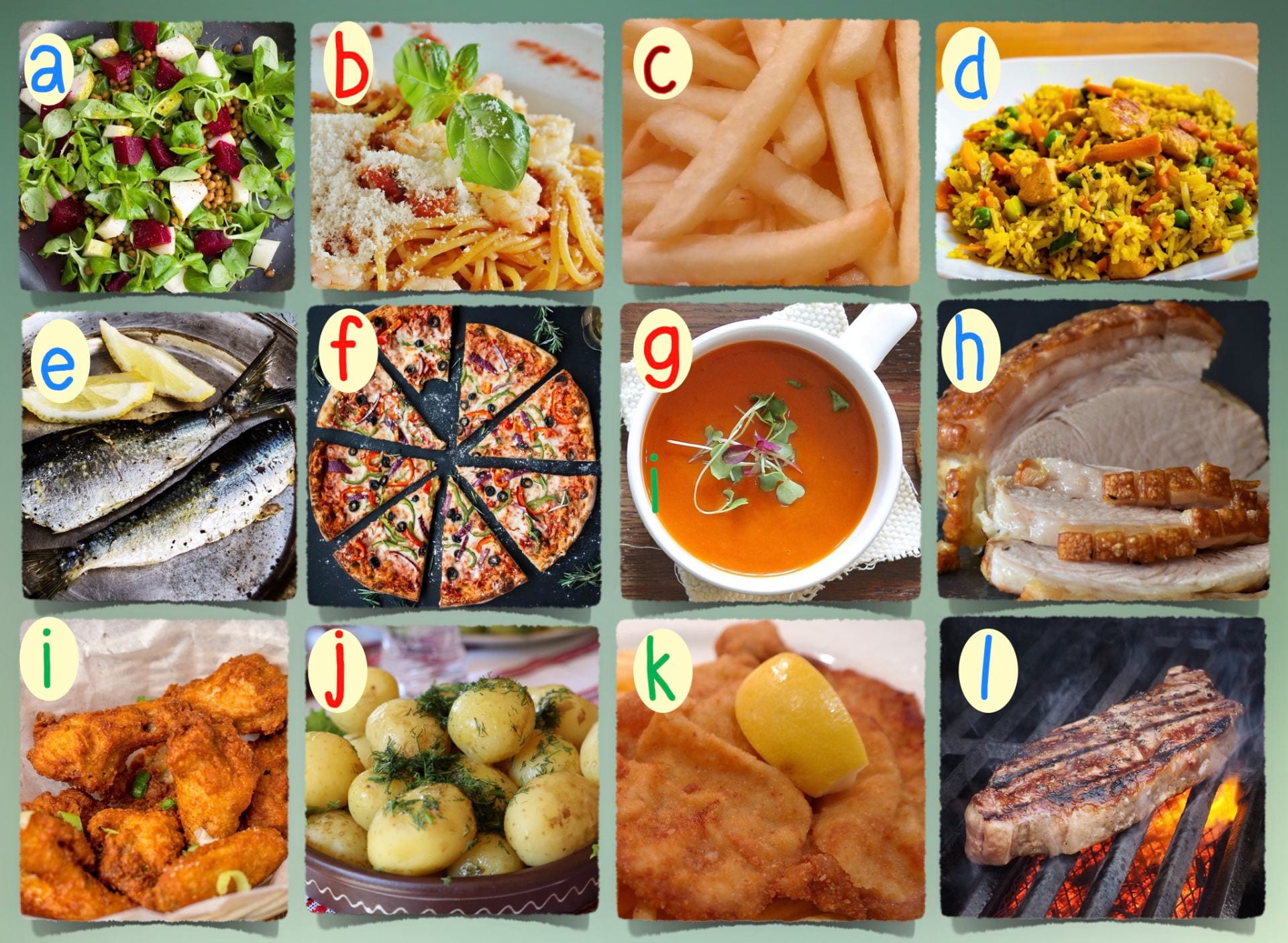Question 1: Names for Lunch and Dinner Foods
Can you select the correct names for each pictured food?
The colour of the letters provides a hint to the gender of the German nouns:
masculine | feminine | neuter | plural

|
a
d
g
j 
|
b 
e
h 
k
|
c *
f
i 
l 
|
*You can also say die Pommes Frites.
Pronunciation: die Pommes Frites | Pommes
Question 2: Introducing the Verb mögen - to like
Look closely at the conjugation of the verb mögen and answer the questions below the table.
|
♥ mögen - to like | An Irregular Verb    
|
|
ich mag - I like
|
wir mögen - we like
|
|
du magst - you like (singular)
|
ihr mögt - you like (plural)
|
|
er/sie/es mag - he/she/it likes
|
sie mögen - they like
|
*****************
a The verb mögen is a/an verb.
b For the three persons singular, the vowel in this verb's stem .
c In the third person singular, there is .
d The plural pronoun endings for wir, ihr and sie (they) are completely .
Question 3: Talking About Lunch and Dinner
Some key formulations are:
• Zu Mittag esse ich...+ [name of food]. → For lunch I eat...
• Zu Abend esse ich gern + [name of food]. → For dinner I like to eat...
• Ich mag [name of food] (sehr). → I like [name of food] (very much).
• Ich mag keinen Käse | keine Pizza | kein Brot. - I don't like cheese | pizza | bread.
Select the correct word for each space below.
Minda: Was isst du gern zu (for lunch)?
Alex: Ich esse gern (pasta). Und du?
Minda: Zu Mittag esse ich (soup) und ein Brötchen.
Alex: Ja, Suppe ich auch, besonders im Winter . Meine Mutter isst Salat zum Mittagessen, aber ich mag Salat. Und was ihr als Familie zu Abend?
. Meine Mutter isst Salat zum Mittagessen, aber ich mag Salat. Und was ihr als Familie zu Abend?
Minda: Wir Pizza sehr. Und am Wochenende essen wir gern (pork roast) mit Kartoffeln.
Alex: Mein Lieblingsessen ist Schnitzel mit (fries, chips).
ist Schnitzel mit (fries, chips).